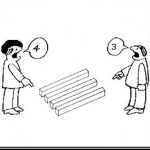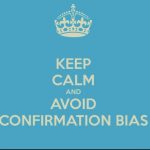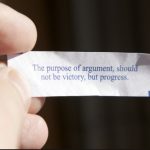I have a belief system. I grew up with it. I was able to stay with the system, examine it, challenge it with those more learned than me, toss it around a bit and not find it wanting. I feel fortunate it has stood by me for all these years. As much as I am, this belief system is me. It is so ingrained in me that one daughter was recently shocked when I stated that while I am Irish, Roman Catholic and American, I am American first, no question! To me, that deep core belief that I am American first comes sincerely from the fact that I am Roman Catholic–I understand beliefs harkening back hundreds, even thousands of years. I get what it is to sustain that belief. I know what it is to stand by ideals that may not be popular, may even be deadly.
Why does this matter? Because I am working with a historical narrative nonfiction where there are newspapers, videos, memoranda, minutes and personal remembrances. And I remember, pretty clearly, the emotion, if not the actual fact of his death. And I know he is all but forgotten by the academicians and the diplomats.
We have changed as a country, a world, so very much not just in the last half of the twentieth century, but rapidly in the twenty-first.  On the news this morning a correspondent mentioned that he felt the increasing anger and unrest over policing, gun control, racism, terrorism and even climate change have a lot to do with the rise social media. Somehow that feels convenient, and yet?
On the news this morning a correspondent mentioned that he felt the increasing anger and unrest over policing, gun control, racism, terrorism and even climate change have a lot to do with the rise social media. Somehow that feels convenient, and yet?
What I see is that our paradigms are our labels. Or, are we unknowingly perhaps, putting labels on ourselves through the way we post our paradigms and the way the online community responds? We post the highlights of our daily lives on Facebook, Twitter, Instagram, etc. We check to see how many likes, loves, wows are on each posting. It is addicting and it feels so much like a community, like we know these people. But is it? Do we? For future writers of narrative nonfiction will all of this, like diaries and memos and minutes and newspapers of the past, become the ‘first rough draft of history’?
When we write nonfiction, especially historical narrative nonfiction we are doing more than just relating dates and descriptions. We are telling a story, and in telling that story we are giving a reason why this is important. We are effectively saying we can learn from this story and be better.
How many of us seek validation of what we think by those around us?  It is the comfort zone of bias, yes? How many of us are willing to shift our paradigm to see what others see, to check our bias at the door and be open? Will we feel adrift? Will we feel wishy-washy because those who hold to their paradigms and bias seem strong? Or are we the strong ones because we have been willing to walk out of our comfort zone and explore our viewpoints and possibly even change them?
It is the comfort zone of bias, yes? How many of us are willing to shift our paradigm to see what others see, to check our bias at the door and be open? Will we feel adrift? Will we feel wishy-washy because those who hold to their paradigms and bias seem strong? Or are we the strong ones because we have been willing to walk out of our comfort zone and explore our viewpoints and possibly even change them?
The narrative nonfiction I am writing begins over a hundred years in the past. Some of it was shocking and new to me, as if it had just happened. I was amazed at my lack of historical knowledge or perspective. This was history I had totally ignored. In effect I had no view of this time period or of this historical place. I had no bias. It was a blank slate.
I have read narrative nonfiction where a thesis is stated and then confirmed. A voice in my head, coupled with my own limited studies, some of them a half a century ago, tell me that this may be too simplistic, too easy and a cheat to the readers of the book, especially as those are young readers.
So when I realized the history is new, I also realized my views of the institutions surrounding that history are very distinct . I can easily find confirmation of my viewpoint online, I know the blogs, the  comments sections, the places to go. But should I? What will that do to my story? My want, nay, my need, is to tell a story that is essentially unknown today by so many in the world, but one that the world needs to hear. And I want that story to be as close to what happened as possible. Not necessarily a truth, but what actually happened. Why? Because it is a story of peace not victory, of reason not hate, of compassion not cruelty.
comments sections, the places to go. But should I? What will that do to my story? My want, nay, my need, is to tell a story that is essentially unknown today by so many in the world, but one that the world needs to hear. And I want that story to be as close to what happened as possible. Not necessarily a truth, but what actually happened. Why? Because it is a story of peace not victory, of reason not hate, of compassion not cruelty.
In writing this manuscript I feel I am in a fight with the most visceral of my emotions, going against what I have come to ‘believe’ as true, at times it is exhausting. Regardless, I must deal with preconceived and find my way as I am writing.